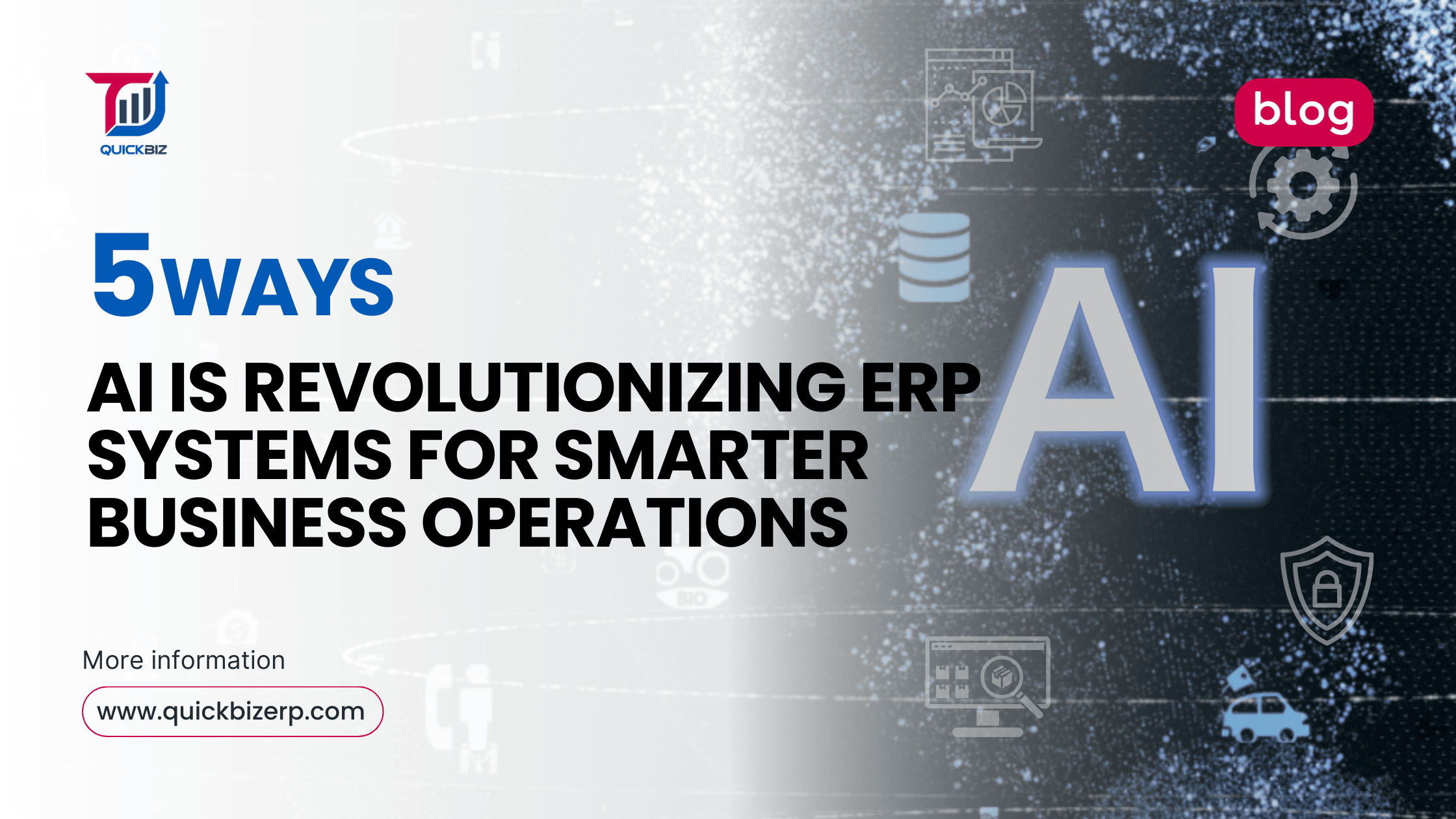5 Ways AI is Revolutionizing ERP Systems for Smarter Business Operations

Introduction
In today’s rapidly evolving business environment, leveraging the right technology is no longer optional—it’s essential. One such game-changing technology is Artificial Intelligence (AI), which is redefining how enterprise resource planning (ERP) systems operate. By integrating AI, businesses can enhance decision-making, streamline operations, and safeguard their data. In this blog, we explore five transformative ways AI is revolutionizing ERP systems, empowering businesses to stay ahead in the competitive landscape.
1. Enhanced Decision-Making with Predictive Analytics
AI-driven ERP systems analyze vast amounts of data to uncover patterns and trends that might be invisible to human observation.
- Predictive insights: AI algorithms predict future demands, helping businesses optimize production and inventory planning which is critical in industries discussed in this blogs.
- Strategic advantage: Companies can make informed decisions faster, backed by accurate, data-driven forecasts.
By anticipating market trends, businesses can stay proactive, reducing risks and seizing opportunities more effectively.
2. Streamlined Inventory Management
Inventory management is critical for operational efficiency, and AI makes this process smarter and more precise.
- Demand forecasting: AI predicts inventory needs based on historical data, seasonality, and market trends.
- Cost reduction: Businesses can avoid overstocking, which ties up capital, and shortages that disrupt workflows.
This ensures optimal inventory levels, reducing waste and improving customer satisfaction.
3. Improved Process Automation
Repetitive tasks like data entry, invoice generation, and order processing can drain resources. AI-powered ERP systems automate these workflows, freeing employees to focus on strategic activities.
- Error reduction: AI minimizes human error, enhancing the accuracy of routine operations.
- Efficiency boost: Automation speeds up processes, ensuring consistency across departments, contributing to a broader discussion of ERP advantages in cloud based system
The result is a significant improvement in productivity and operational efficiency.
4. Personalized User Experiences
AI personalizes interactions within ERP systems, ensuring that users can access the tools and insights most relevant to their roles.
- Chatbots and virtual assistants: AI-powered tools provide instant support, answering queries and guiding users through complex workflows.
- Custom dashboards: AI customizes interfaces based on user preferences and tasks, reducing learning curves and improving usability.
This level of personalization enhances user satisfaction and accelerates adoption across teams.
5. Strengthened Cybersecurity
As ERP systems house sensitive business data, ensuring robust cybersecurity is paramount. AI enhances security by proactively monitoring and protecting against threats.
- Threat detection: AI identifies anomalies and potential breaches in real time.
- Automated response: Systems can neutralize threats instantly, minimizing damage and downtime.
This makes AI-powered ERP solutions a critical ally in safeguarding business operations.
Conclusion
The integration of Artificial Intelligence (AI) into ERP systems is reshaping how businesses operate. From predictive analytics to enhanced cybersecurity, AI empowers organizations to work smarter, faster, and safer. As the business world becomes increasingly complex, AI-driven ERP systems are no longer a luxury—they’re a necessity for staying competitive. Embrace the future of ERP with AI to unlock unparalleled operational efficiency and strategic insights.

